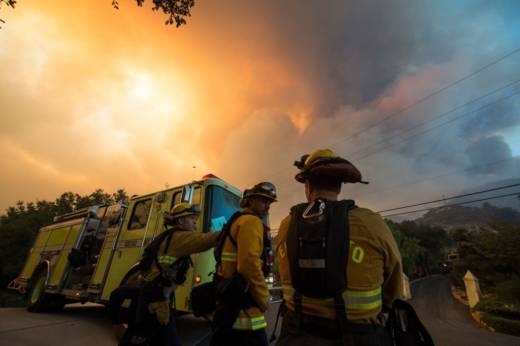The bill would allow utilities that caused last year’s devastating wildfires in Northern and Central California to issue bonds to help pay for their liability costs; and opens the door for those costs to be passed on to ratepayers.
Opponents charged that the provisions amount to a bailout for PG&E. Senator Jerry Hill, D-San Mateo, said PG&E invested less in prevention than other utilities, but will be able to recoup losses.
“This bill rewards their bad behavior,” Hill said.
The legislation could result in ratepayers eating the costs of future fires as well.
Starting in 2019, the California Public Utility Commission would be allowed to consider a broader range of factors when deciding if costs can be passed on to ratepayers.
And backers of the bill contend that lawmakers must to everything possible to avoid what they call the worst-case scenario: a utility bankruptcy that would trigger corporate restructuring and spikes in rates.
“[Bankruptcy] means that so many of our citizens who were uninsured or underinsured will likely not recover from wildfire devastation,” said Dodd. “We just cannot allow that to happen.”
Governor Jerry Brown had proposed a more expansive softening of state liability law, which currently allows property owners to seek compensation from utilities that cause fires, even if the electric company didn’t act negligently. PG&E had lobbied hard for a complete repeal of that law, saying their future was at stake.
But after weeks of debate, Dodd, the bill’s original author, said lawmakers wouldn’t touch that law, known as “inverse condemnation,” this year.
Instead, they came up with this compromise, which some ratepayer advocates and large corporate electricity customers oppose but PG&E, firefighters, and some wildfire victims support.
In a nod to PG&E critics — and the state’s largest utility didn’t seem to have a lot of supporters in the Capitol — the bill also prohibits electrical and gas utilities from using ratepayer money on executive salaries or bonuses. It also requires utilities to come up with a wildfire mitigation plan and for them to hire an independent evaluator to assess whether they are complying with the plan and to assess each company’s “safety culture.”
The 58-page bill was the result of weeks of work by a bipartisan, joint legislative committee that convened as more wildfires ravaged California this summer. It was finalized at the last possible moment and resulted in furious lobbying in recent days from both supporters and opponents.
“For this legislative session, there is no issue that was as intense as this issue,” concluded Assemblyman Chad Mayes, R-Yucca Valley.
